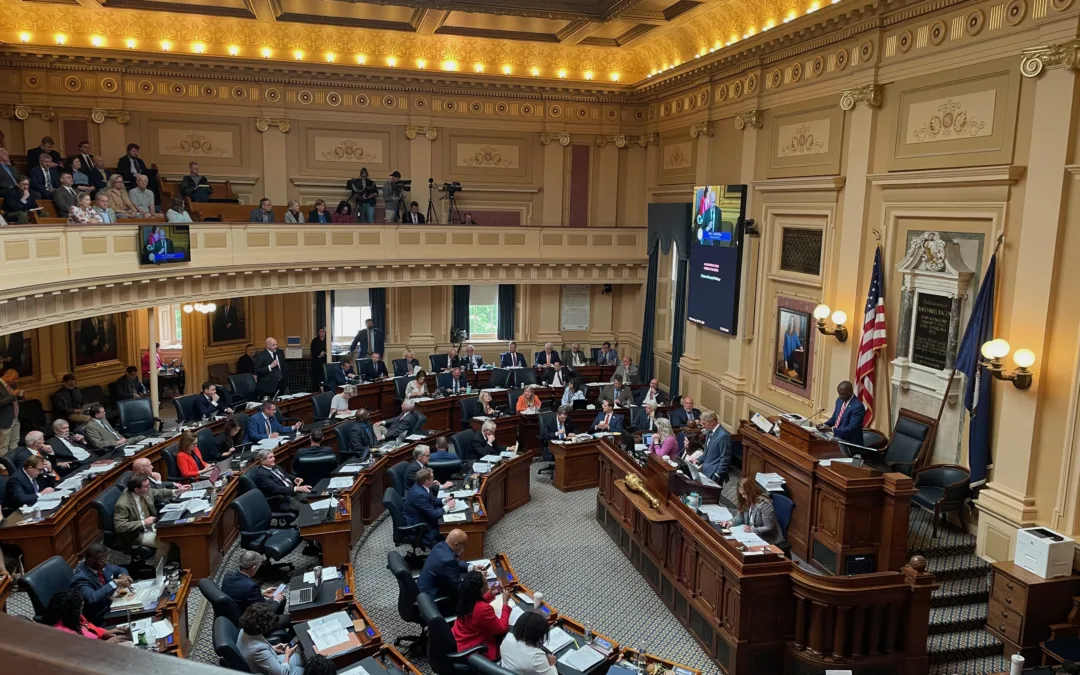
New proposal would provide a constant source to fund affordable housing.
RICHMOND – In January 2019, 497 people in Richmond were homeless. By February 2020, that number climbed to 549. But in order to solve the problem, the city needs housing people can afford. The city council tackled that problem Monday night.
In their Jan. 11 meeting, the council approved an ordinance that will let the Richmond
Affordable Housing Trust Fund grow. As a result, it’ll create 10,000 new affordable housing units.
The ordinance in question, 2020-214, sets up a new tax system of sorts. When real estate tax exemptions expire, that revenue goes straight to the AHFT rather than to the general fund. The idea is to provide a constant revenue stream, to keep adding new housing.
“Nearly half of Richmonders spend 30% of their income on housing,” said Joh Gehlach. Speaking on behalf of the Virginia Association of Realtors, Gehlach endorsed the concept. He said it’s clear private companies won’t do it on their own. “It’s clear that the market is not going to address this need, and the Affordable Housing Trust Fund is an essential tool in the toolbox to address it,” he said.
The AHTF was established in 2004. The fund’s primary purpose is to address the affordable housing needs of those who live or work in Richmond. It aims to establish and promote quality long term affordable housing.
First proposed in September 2020 with support from Richmond Mayor Levar Stoney, the ordinance’s passing ensures that the amount in the AHFT should be approximately $10 million by 2026.
“Our track record shows Richmond is capable of providing quality, affordable housing for the housing insecure, the houseless and newcomers to our city,” Stoney said.
RELATED: Richmond Asks Shelters to Protect Homeless Trans Residents
Bring the Past Forward
Michael Anderson is the director of the Housing Trust Fund Project for Community Change, a national nonprofit that has worked for the last three decades to create advance and expand housing trust funds nationwide. He spoke to the council from Oregon.
“The vote before you today is extremely exciting in that it will bring the past forward of the Richmond AHTF into a bold new era where dedicated and ongoing revenue will put the city in a wonderful position in terms of being able to take on the magnitude of the challenge that you currently face,” Anderson said.
A challenge is a good adjective for what the city is facing. According to the United States Census Bureau, as of July 2019, 23.2% of Richmonders are persons in poverty. This new ordinance will pay for 10,000 housing units over the next decade. These will be available for those without a home, residents with special needs, neighbors facing displacement due to gentrification and Richmonders currently living in substandard public housing units, apartments and mobile home units.
RELATED: Richmond Council Puts Monument Avenue Plan on Hold
A Unique Funding Method for Housing
City staff members tried to relieve fears that the plan would raise taxes. Instead, they pointed out, it uses money not earmarked for anything.
“This funding mechanism is unique: this is new revenue not pulled from any other priority, without creating a new tax,” said Deputy Chief Administrative Officer for Community and Economic Development Sharon Ebert. “A growing pot of dedicated revenue every year, combined with state and federal support, will make our plans for equitable and affordable housing options in Richmond a reality.”
This meant a lot to Richmonders Involved to Strengthen our Communities (RISC). The group, founded in 2002, is made up of congregations from throughout Richmond, Henrico and Chesterfield. It uses large numbers of organized people to solve critical community problems. RISC’s members see the Affordable Housing Trust Fund as a vital community issue.
Two councilwomen, Councilwoman Ellen Robertson and Council President Cynthia Newbille, also co-patroned the ordinance with the mayor.
“I’ve said it over and over again, and I will continue to – we must have plans in place that speak to equitable, stable housing,” said Robertson. “It is central to the health and well-being of all families, and we must address the systems that hinder that progress.”
Erica Turman is a freelance reporter for Dogwood. You can reach her at [email protected].
Politics

Youngkin, Democrats to start over on budget talks
The Republican governor stood with Democratic leaders in the General Assembly on Wednesday in a bid to ease tensions over their budget debate....

VIDEO: Domestic abuse victims speak out against the gun law bills Gov. Glenn Youngkin vetoed
Senate Bill 47 and House Bill 46 aim to close the loophole that allows offenders to transfer their firearms to someone else instead of relinquishing...
Local News

Virginia verses: Celebrating 5 poetic icons for National Poetry Month
There’s no shortage of great writers when it comes to our commonwealth. From the haunting verses of Edgar Allan Poe, who found solace in Richmond's...

Join the fun: Recapping Family Literacy Night’s storybook adventures
When’s the last time you read a book aloud with a loved one? If it’s difficult to answer that question, then maybe it’s time to dust off that TBR...




